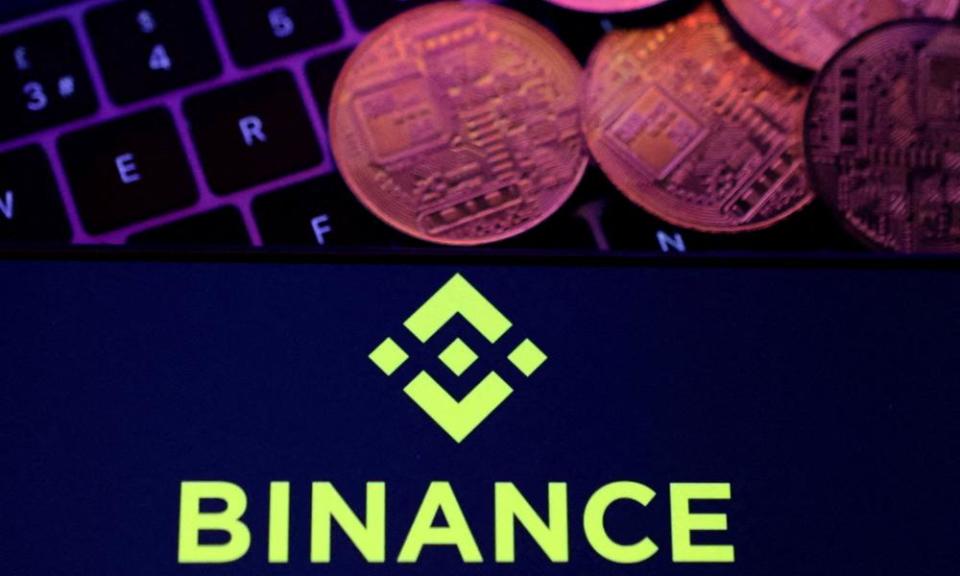Binance auditor withdraws from working with crypto company

Binance, the world’s largest cryptocurrency exchange, has revealed that the auditor Mazars has stopped working with it.
The exchange, which has been hit by $6bn of withdrawals this week, said in a statement that the French auditing firm had “temporarily” paused work with Binance.
Mazars said it had paused all proof-of-reserves work among cryptocurrency clients, including Binance. Proof-of-reserves checks entail verifying that an institution can cover its customers’ funds. Mazars’ relationship with Binance is limited to proof-of-reserves work.
Mazars added it was pausing such work due to concerns about “the way these reports are understood by the public.” Mazars went on state that such reports had limitations in terms of providing assurances. It said proof-of-reserves reports “do not constitute either an assurance or an audit opinion on subject matter. Instead they report limited findings based on the agreed procedures performed on the subject matter at a historical point in time.”
The move by Mazars follows the collapse last month of FTX, one of Binance’s rivals, and the arrest on Monday of FTX’s founder, Sam Bankman-Fried, who has been charged in the US over alleged fraud, money laundering and conspiracy.
Binance customers have been scrambling to pull funds from the exchange, and a spokesperson revealed it handed back $6bn in total over Monday, Tuesday and Wednesday this week.
The spokesperson said Binance had managed the withdrawals “without breaking stride”, although on Tuesday the exchange had pause to withdrawals of the stablecoin USDC, after running out of the asset in its reserves. But it says its efforts to stave off bank run are working.
A stablecoin, like the name suggests, is a type of cryptocurrency that is supposed to have a stable value, such as US$1 per token. How they achieve that varies: the largest, such as tether and USD Coin, are effectively banks. They hold large reserves in cash, liquid assets, and other investments, and simply use those reserves to maintain a stable price.
Others, known as "algorithmic stablecoins", attempt to do the same thing but without any reserves. They have been criticised as effectively being backed by Ponzi schemes, since they require continuous inflows of cash to ensure they don't collapse.
Stablecoins are an important part of the cryptocurrency ecosystem. They provide a safer place for investors to store capital without going through the hassle of cashing out entirely, and allow assets to be denominated in conventional currency, rather than other extremely volatile tokens.
“Ultimately, our users want to know that their funds are secure and that our business is financially strong,” said the spokesperson.
“To that end, Binance’s capital structure is debt free and, over the past week, Binance passed a stress test that should give the community extraordinary comfort that their funds are secure. Despite the large number of withdrawals 12-14 December, $6bn of net withdrawals over three days, we were able to fulfill them without breaking stride.”
While Mazars worked with Binance, the company stopped short of providing a full audit for the exchange. Instead, a document that Mazars prepared, known as a “proof of reserves report”, was prepared using a method known as “agreed-upon procedures”, in which the auditor only examines areas of the business they are explicitly asked to focus on.
In Binance’s case, that meant examining the company’s reserves, but not vetting claims about its liabilities. Changpeng Zhao, Binance’s chief executive, has said the company “doesn’t have any loans”.
The Binance spokesperson added that the exchange had “reached out to multiple large firms” to take on its auditing, including the “big four” accounting groups, although they are “currently unwilling” to conduct a proof of reserves report for a private crypto company. “We are still looking for a firm who will do so,” the spokesperson added.
Crypto companies regularly fall short of full audits. Tether, a controversial stablecoin provider that says it has more than $70bn of reserves backing its cryptocurrency, has produced a quarterly “statement of reserves”, occasionally presented as an audit, which vouches for the presence of assets in its reserves at a snapshot in time. The company touts its work with a “big five” audit firm, BDO, which is not part of the conventional accounting “big four”.
On Thursday, the auditing firm Armanino, a mid-sized American auditor, was reported to be ending its crypto audit practice entirely, after signing off on the accounts of FTX’s supposedly ringfenced American subsidiary.
The auditor fears that the resulting reputational risk could harm its non-crypto business. It was cited in a class-action lawsuit against the shuttered exchange, filed by an FTX customer who claims to have lost $20,000, according to Forbes, which reported the decision to withdraw from the crypto business.

 Yahoo Finance
Yahoo Finance 